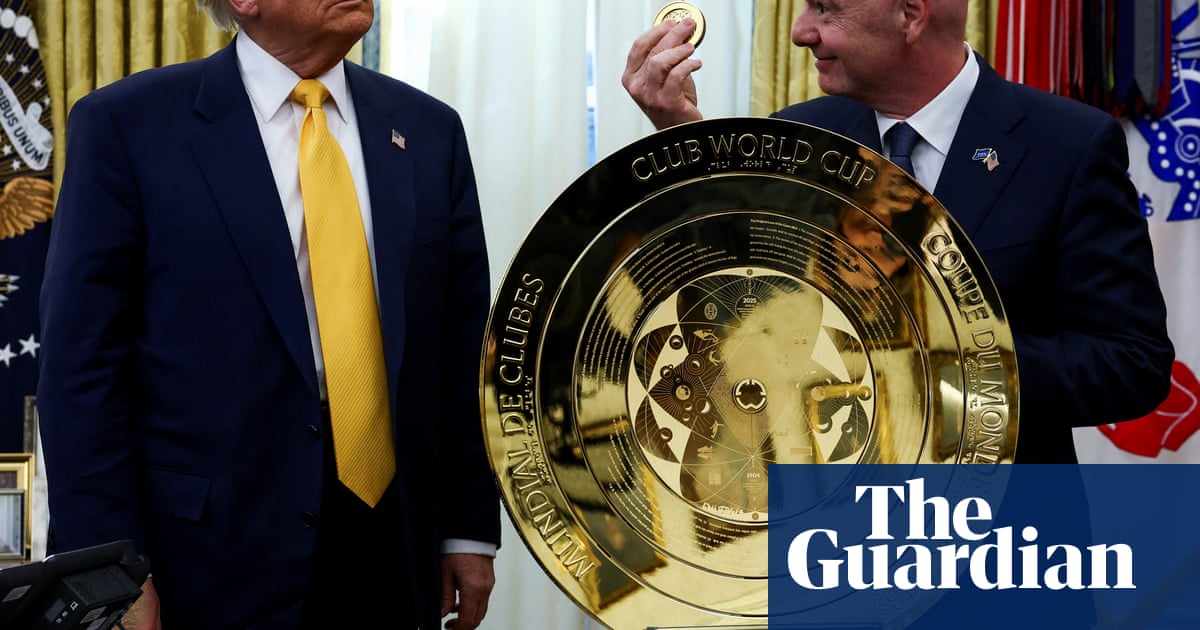Fifa will hold a consultation about expanding theClub World Cupto 48 teams in 2029 if this summer’s edition is successful, after lobbying from clubs who failed to qualify for the new $1bn (£740m) tournament.
The32-team competitionkicks off in the US on Saturday and the winners will receive up to $125.8m in participation and prize money for playing seven matches. That is about £25m less than Paris Saint-Germain banked from Uefa for their 17-game Champions League-winning campaign, leading to concerns from clubs who have missed out.
Barcelona, Arsenal, Liverpool, Manchester United and Milan are among the big clubs with large fanbases who have not qualified and unlessFifalifts its cap of 12 European entrants, expansion is the only way to ensure more European competitors.
Next year’s men’s World Cup and the2031 Women’s World Cupwill involve 48 teams for the first time, so expanding the Club World Cup would be consistent with Fifa’s new tournament model. Fifa sources said that although serious discussions regarding expansion had yet to take place, talks with all stakeholders about the Club World Cup’s format and structure would be held after this summer’s tournament.
Another possible change being pushed by Premier League clubs is increasing the cap of two clubs from one country, a restriction that led to Liverpool missing out despite meeting one of the qualifying criteria of having one of the best eight Champions League records of clubs who did not win the competition between 2021 and 2024. Chelsea, Manchester City and Real Madrid qualified as Champions League winners during that period, with nine European clubs qualifying through Uefa rankings because Madrid won the competition twice, in 2022 and 2024.
Fifa has waived the two-per-country limit for clubs that won their continental competition in that period, leading to Brazil having four clubs from four successive Copa Libertadores victories.
The US have three clubs taking part after Los Angeles beat the Mexican side Club Américain a playofftriggered by the expulsion of Club León for a breach of multi-club ownership rules.
In an interviewwith the Athleticlast week the Fifa’s general secretary, Mattias Grafström, said all options were open for 2029. “For the future we are very open-minded to look at formats and so on that we will discuss with the clubs and with the confederations,” he said. “I believe strongly in the future of this competition.”
Expanding the Club World Cup would be well received in particular by European clubs, whose commercial strength and global popularity are not reflected in this year’s entry list. A bigger tournament involving more of the bigger European clubs would also suit Fifa, which initially struggled to sell commercial deals for the competition.
Dazn agreed to pay $1bn for global TV rights in a deal that allows it to sublicense to other broadcasters on a regional basis, withChannel 5 buying the rightsfor 23 matches in the UK.
The Dazn deal is being funded by a 10% investment in the company by Saudi Arabia’s SURJ Sports Investment and Saudi money is underpinning the tournament, with the country’s Public Investment Fund announced as tournament partners last week. The longtime Fifa sponsors Adidas, Coca-Cola and Visa have also come on board after initially resisting. Ticket sales have been mixed, however.
Expansion would be resisted by the international players’ union, Fifpro, which along with the lobby group European Leagues has filed a legal complaint to the European Commissionaccusing Fifaof “abuse of dominance” for allegedly failing to consult them over the scheduling of the tournament.
Fifa has denied the allegations and accused some leagues of “commercial self-interest” and “hypocrisy”. The European Commission has yet to decide whether to investigate the complaint.
